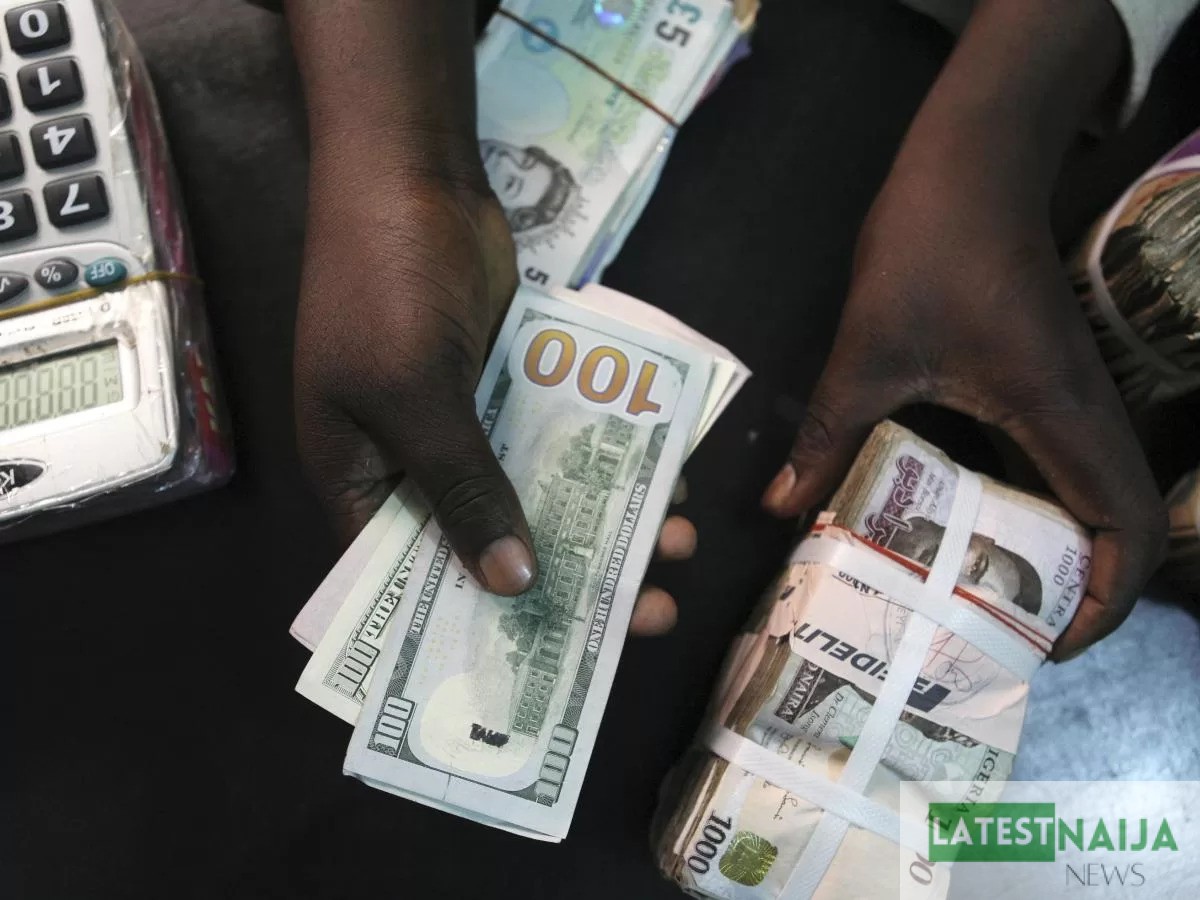In a disheartening turn of events, the Nigerian naira has hit an all-time low in the parallel market, casting a dark shadow over the nation’s economy.
 A comprehensive survey conducted among street traders across the country has revealed that the naira now ranges between N1,035 to N1,040 against the US dollar.
A comprehensive survey conducted among street traders across the country has revealed that the naira now ranges between N1,035 to N1,040 against the US dollar.
This latest figure, notably N1,040, indicates a substantial depreciation of N40 or 4.0 percent from the N1,000 exchange rate recorded just two weeks ago. Street traders are currently buying the dollar at N1,025 and selling it at N1,045, allowing them a profit margin of N25.
A prominent source lamented, “The dollar is not readily available. It is scarce.” This scarcity has sent shockwaves through the informal currency exchange market, with many struggling to access foreign currency.
Meanwhile, at the official forex market, known as the investors’ and exporters’ window (I & E), the naira took a 0.70 percent hit, closing at N776.80 to the US dollar on Wednesday. The I&E window, which is overseen by the FMDQ OTC Securities Exchange, reported a total of $60.30 million in forex transactions.
The deteriorating state of the naira can be attributed to lingering liquidity issues, as highlighted by data from the Central Bank of Nigeria (CBN). The foreign exchange reserves have dwindled to a two-year low, standing at just $33.23 billion by the end of the third quarter of 2023.
This marked a significant drop of $5.01 billion year-on-year, compared to the $38.25 billion registered in September 2022. On a quarter-on-quarter basis, the foreign reserves suffered a decrement of $881.84 million, having been at $34.11 billion at the end of the second quarter (Q2).
The World Bank, in a recent assessment, labeled the naira and Angola’s kwanza as the “worst performing currencies” in Africa for the year 2023. Both currencies have seen their value shrink by almost 40 percent, underscoring the economic challenges both countries currently face.
As the naira’s woes continue, the government and central bank face increasing pressure to stabilize the currency and bolster the nation’s forex reserves to avoid further economic turmoil.


Comments are closed.